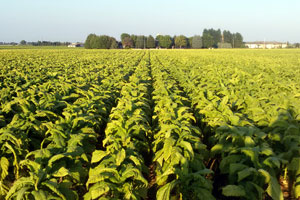Western Australia’s state government is moving to introduce laws that could dump vaping into the same regulatory framework as the one that restricts smoking, according to a story by Cathy O’Leary for The West Australian.
Laws governing e-cigarettes in Australia are inconsistent. Western Australia (WA) effectively bans the sale of non-nicotine products by making it illegal to supply anything that resembles a tobacco product.
But WA is one of the few states not to ban people using them in non-smoking areas.
A parliamentary committee report chaired by Labor MLA Janine Freeman last year conceded the state’s laws were incomplete and loosely enforced.
“Anecdotal evidence suggests that many West Australians are unaware that nicotine e-cigarettes are illegal in Australia, and that selling a device that resembles a tobacco product is illegal in WA,” she wrote.
“For the time being at least, we have to work around a nonsensical regulation that allows the sale of nicotine for indisputably harmful tobacco products but not for a product which is widely regarded as less harmful.”
WA Health Minister Roger Cook, who supports a ban on e-cigarettes until their safety and effectiveness have been proved, said a review of WA’s tobacco laws would look at e-cigarettes.
“Towards the end of 2018, the Department of Health will conduct a further review of tobacco laws and I expect issues around all e-cigarettes to be front and centre,” he said.
Category: People

Favoring combustibles

New IQOS store in London
Philip Morris Limited is scheduled today to launch its fourth IQOS store in London, UK – this one in High Street Kensington.
The new store will offer adult smokers, across 800 sq ft of retail space, seven days a week, the opportunity to have guided trials by trained IQOS staff to learn about how the heated tobacco product works, and to discuss how they can switch from smoking cigarettes to IQOS.
The store will include, too, an interactive educational display to provide more information on heated tobacco technology and the IQOS product.
Customers will be able to acquire personalised and embossed IQOS devices and accessories.
The new store, which was designed by iD, uses white, grey- and copper-toned design elements to retain and accentuate the original features of the building, which was previously occupied by a large bank.
The windows of the store use a mixture of digital and feature displays, in neutral tones, to accent the stone facade of the building.
“This is a significant development in IQOS’s commercial expansion in the UK and we are delighted to be bringing the unique, retail experience that our IQOS stores deliver to High Street Kensington,” said Peter Nixon, MD of Philip Morris Limited UK & Ireland. “As a company, PMI has never previously had retail stores in the UK and so the opening of our fourth store marks an important moment for us and our ambition for a smoke free future.”
In a press note, PM said the new store marked a further development in the pledge to convert 100,000 UK adult smokers to its heated tobacco product, IQOS, and to reach its goal of a smoke free future for the UK.
‘This pledge is part of Philip Morris International’s … global commitment to offer adult smokers a range of alternative smoke free products for those who continue to smoke…’
London’s first IQOS store opened on Wardour Street, Soho, in December 2016, while the second and third stores opened in Westfield and Boxpark Shoreditch in September last year.
Debating smoking bans
The Ministry of Health, Labor and Welfare is set to exclude from its third basic plan to tackle cancer, numerical targets for preventing passive smoking, according to a story in the Mainichi Daily News.
The targets were in the second plan that ran from fiscal 2012 to 2016, but will be left out of the third in line with a draft revision of the Health Promotion Act, which does not include a blanket ban on smoking in public spaces but states only that ‘unwanted passive smoking will be eliminated’. The draft revision is due to be submitted during this year’s regular Diet session.
As a result, the second-hand-smoke prevention measures in the third anti-cancer plan will take a step back from specific numbers in favor of more abstract targets.
The third plan was approved by the Cabinet in October after numerical targets concerning passive smoking were put on the back burner because the health ministry and the ruling Liberal Democratic Party could not agree on a figure.
The second plan had included aims such as reducing the ratio of people exposed to second-hand smoke in restaurants and bars to 15 percent by fiscal 2022.
And an expert panel that discussed the contents of the third plan urged the government to bring in a ‘zero passive smoking’ target.
However, new measures proposed by the health ministry in January list several exemptions such as allowing smoking in existing small-scale restaurants and bars if they display a relevant sign.
Nevertheless, the anti-cancer plan states that ‘anti-passive smoking measures will be implemented thoroughly ahead of the 2020 Tokyo Olympics and Paralympics, and a society with zero unwanted second-hand smoke exposure will be realized as early as possible during the third plan’.
Zimbabwe moving on
Zimbabwe’s central bank has said it plans to sell bonds to allow citizens living outside the country to invest in the country’s tobacco and gold, according to a story by Godfrey Marawanyika and Renee Bonorchis for Bloomberg News.
The Reserve Bank of Zimbabwe said it would provide more information on the diaspora bonds ‘in due course’.
At the same time, banking rules are being introduced with the intention of encouraging money flows and exports.
Under the rules, lenders must give exporters access to all of the foreign currency they received from selling goods, within 14 days of the funds being deposited.
And small, non-corporate exporters shipping more than $2,000 of goods no longer need fill in certain forms.
The new policies and plans come three months after the former president was replaced by the former deputy president, Emmerson Mnangagwa, who is said to be on a drive to revive the economy and attract investment.
The new administration will allow white farmers to apply for 99-year leases on land, up from five years previously.
And it has pledged to compensate them for improvements they made to land that was seized.
The Bloomberg story is at: https://www.bloomberg.com/news/articles/2018-02-19/zimbabwe-plans-gold-tobacco-diaspora-bonds-as-bank-rules-change.
Austria undecided
Following a public outcry, the scrapping of a ban on tobacco smoking in Austria’s bars and restaurants will have to be debated in parliament, according to a dw.com story.
Austria is one of a few Western countries that allow smoking in bars and restaurants, but that liberal attitude was due to be snuffed out in May with the enactment of a ban imposed by the previous coalition government.
The ban was scrapped by the new government at the behest of the leader of the far-right Freedom Party, Austria’s vice chancellor Heinz-Christian Strache, himself a smoker, who said it impinged on “freedom of choice”.
Chancellor Sebastian Kurz, a non-smoker, had supported the ban when his center-right People’s Party was a member in the previous ruling coalition. But he was forced to change stance, bowing to pressure from his junior coalition partner, which insisted that the ban be dropped as a precondition for being part of the government.
The Austrian Medical Association (ÖÄK) launched a petition on Thursday to thwart the government’s plan, and the petition proved so popular that registration of signatures on the Interior Ministry website had to be stopped for two hours on Friday due to the heavy load placed on the ministry’s online servers.
The story said that more than 100,000 people had signed the petition, a number high enough to mean that the matter would have to be debated in parliament.
“This is a big vote and it has to make politicians rethink the issue,” said the ÖÄK’s president, Thomas Szekeres. “We will keep collecting signatures and expressions of support so as to keep increasing the pressure.”
In theory, large restaurants in Austria are required to provide separate smoking and non-smoking areas, but the rules are not rigidly implemented. Smaller restaurants need not have a separate area if the owner agrees to allow smoking on the premises.
Canada in dialogue
The Global Forum on Nicotine (GFN) is due to stage a free-to-attend, tobacco-harm-reduction dialogue in Vancouver, Canada, in April.
The dialogue, Tobacco harm reduction: different strokes for different folks, or a consistent approach?, is to be held in partnership with the BC Centre for Disease Control and the Canadian Drug Policy Coalition.
It will be held from 09.00 to 16.30 on April 9, at the Morris J Wosk Centre for Dialogue in Vancouver.
‘The huge growth in the availability of safer nicotine products, with new technologies, such as vaping and heat not burn, as well as oral tobacco products, such as snus, has created greater opportunities for smokers to switch from a proven dangerous and unhealthy way to consume nicotine to much safer methods, according to a press note from the GFN, which has previously run series of dialogues in the UK and Ireland.
‘The emerging science surrounding both the technology and the products is positive and encouraging.
‘Vancouver has a proud tradition for supporting harm reduction for illicit drug use, including pioneering supervised consumption rooms for injecting drug use. The principles of harm reduction are well understood and have been enacted for many years with positive results.’
Participants will be addressed by international and local presenters, including:- Dr. Mark Tyndall, executive medical director, BC Centre for Disease Control;
- Professor Marjorie MacDonald, School of Nursing, University of Victoria;
- Professor Gerry Stimson, professor emeritus, Imperial College, London;
- Jacques Le Houezec, independent consultant in public health and tobacco dependence, France;
The presenters are due to examine:
- The history of harm reduction in Vancouver, the lessons learnt and the implications for this approach in relation to tobacco and smoking.
- Tobacco harm reduction as the ‘new kid on the block’ and what the emerging evidence is telling us.
- What does regulation look like and what are the elements that make for appropriate and effective regulation?
- The consumer experience – what products do people use and what are the results for them?
- What are the key issues for policy-makers and how can we ensure buy-in from all stakeholders?
Attendance at the dialogues is free, but participants are required to register at: https://gfn.net.co/dialogues/register.
More details about the dialogue are at: https://gfn.net.co/dialogues/vancouver-2018.
Singapore taxes up
The Singapore government has imposed a 10 percent increase on tobacco excise duty, Finance Minister Heng Swee Keat said during his Budget speech yesterday.
According to a story by Monica Kotwani for Channel NewsAsia, Heng said the higher excise duty would be implemented across all tobacco products with immediate effect – from February 19.
The Singapore Customs’ website indicates that cigars, cheroots and cigarillos were taxed at S$388 per kilo; so this will have increased to S$427 from yesterday.
The excise duties on cigarettes containing tobacco and cigarettes with tobacco substitutes has increased to almost 43 cents per gram.
Kotwani quoted the World Health Organization as saying that a 10 percent increase in the price of cigarettes resulted in a four percent decrease in demand in high-income countries, and about a five percent decrease in demand in low- and middle-income countries.
Licit cigarettes vanish
The majority of shops in Kuwait are empty of cigarettes, according to a story in The Kuwait Times.
But it is not clear why this situation has come about. Some people are claiming that supplies have been cut off deliberately ahead of price rises, while others are blaming mass purchases by smokers from neighboring countries where tax-induced price rises have been imposed recently.
The times said that it had been rumored that cigarette companies in Kuwait had made ‘preparations to increase cigarette prices,’ and that certain brands of cigarettes had disappeared from markets and grocery stores.
Such disappearances had opened up a black market in the brands in question.
Despite the disappearance of some brands and the claim that the majority of shops in Kuwait were bereft of cigarettes, The Times said that the ‘prices of most brands of cigarettes have increased by 100 to 200 fils’.
Last week, the Times reported that the prices of some popular brands of cigarettes had been increased in Kuwait by as much as 60 percent despite the rises being labeled as illegal by the Ministry of Commerce and Industry.
Suppliers are apparently not allowed to increase the prices of goods unless they obtain approval from the ministry, which is usually given for imported goods, such as cigarettes, whose prices have increased in their country of origin.
If suppliers increase prices without approval, they are liable to be fined.
The Times reported this week that some smokers were complaining that cigarette traders had intentionally blocked the supply of cigarettes for the past 15 days in preparation for price rises.
Such a strategy was reportedly used before, in 2015, and at that time it provoked angry campaigns on social media. Smokers denounced cigarette shops for hoarding large quantities of cigarettes and clearing the shelves in anticipation of an official announcement to raise prices. Some sellers sold cigarettes at higher prices, as is happening again.
Some people believe that cigarette-price discussions are under way between representatives of the Ministry of Commerce and cigarette companies.
Zimbabwe plantings down
Zimbabwe has less land under flue-cured tobacco this season than it had during the 2016-17 season, according to a story in The Herald.
The Tobacco Industry and Marketing Board (TIMB) says that the 5.5 percent drop in tobacco hectarage was been caused by poor rainfall distribution.
In its latest crop assessment report compiled with Agritex after an assessment undertaken from January 22 to February 2, the TIMB said 104,397 ha were put under tobacco this season compared to 110,518 ha last season.
The late onset of rains followed by a prolonged dry spell meant that the dryland crop was more affected than was the irrigated crop, which is now being harvested, cured and graded.
‘Most of the cured leaf is lemon to orange in color and of fair to good quality,’ said the TIMB. ‘Some of the farmers have already started grading. The average yield from this planting is expected to be around 2,300 kg per ha.’
The bulk of the dryland crop, which was planted from about the middle of October to the end of November, is now fully-grown. But because of the unhelpful weather, some farmers had to replant, which resulted in an uneven crop in some areas. The expected average yield is around 1,700 kg per ha.‘Now is the time to act’
The National Tobacco Reform Initiative (NTRI) is urging US health care professionals to embrace the concept of relative risk.
The NTRI said in a press note today that a recent report by the US’ National Academies of Sciences, Engineering, and Medicine (NASEM) had lessons also for public health advocates and officials outside the Food and Drug Administration.
‘We urge these professionals, within and outside government, to embrace the concept of relative risk,’ the press note said. ‘The science base clearly demonstrates that e-cigarettes represent less of a risk for smokers than continuing to smoke.’
The NTRI team is said to be made up of 10 senior and independent national smoking control leaders who, collectively, have provided decades of service fighting the tobacco epidemic.
“After fighting the tobacco epidemic for over five decades, we now have proven harm reduction methods to help us avoid a carnage in otherwise-preventable deaths,” NTRI team member, John Seffrin, PhD, was quoted as saying.
The NTRI said the much anticipated NASEM report on e-cigarettes supported the FDA’s bold new two-part nicotine strategy for product regulation, which comprised one, reducing the addictiveness and appeal of deadly combustible cigarettes; and, two, making safer alternative nicotine products available to addicted smokers.
‘There is an urgency to help smokers since one in two of them will die from a smoking-caused disease,’ the NTRI said. ‘This outcome can be prevented. ‘Cigarettes and other combustible tobacco products are substantially more harmful than non-combustible tobacco and nicotine products, such as e-cigarettes. The fundamental truth, that smoking – not nicotine – is responsible for most of the harm, and that smokers should have a variety of potentially less harmful nicotine-containing products if they want or need to continue using nicotine, is the keystone of FDA’s approach.
‘A careful reading of the Report (…Public Health Consequences of E-Cigarettes: Health and Medicine Division) leads to the following evidence-based conclusions:- E-cigarettes are significantly less dangerous than lethal tobacco smoke;
- To date, there simply is no evidence of long-term-use damage to the heart or lungs;
- E-cigarettes use can help smokers reduce their risk of certain lethal diseases;
- E-cigarettes use can and has helped many smokers quit tobacco smoking completely;
- E-cigarettes can help reduce the risk of lethal disease in smokers who either can’t or won’t quit smoking tobacco completely.’
The NTRI said that now is the time to act.
And it presented a number of action points:
* Approach regulation of tobacco and nicotine products according to their relative risk;
* Educate smokers that nicotine delivered without smoke is a less harmful choice and that there are massive differences in risk across the products;
* Pursue regulations that work to enable smokers to switch completely to the much less hazardous non-combustible products such as snus, and e-cigarettes.
‘The NASEM Report and these evidence-based conclusions can help a consumer in making an informed choice about their use of nicotine products,’ the NTRI said.
This Report, along with FDA’s comprehensive nicotine strategy, demonstrate that we know enough to tell smokers that the most important thing they can do to improve their health is to stop inhaling smoke from burning tobacco products (like cigarettes, cigars, roll-your-own) into their lungs. And, if they continue to want to use nicotine, it is much better for their health to use it in a form that is not lit on fire and smoked.’
“Smokers have been horribly misled to believe e-cigarettes are as or are more harmful than smoking,” David Abrams, Professor of Global Public Health at New York University, was quoted as saying. “The truth can reassure those who want to switch”.









